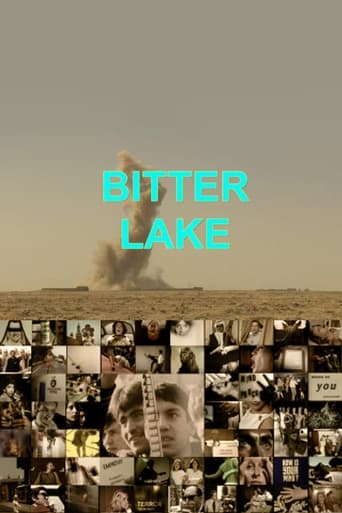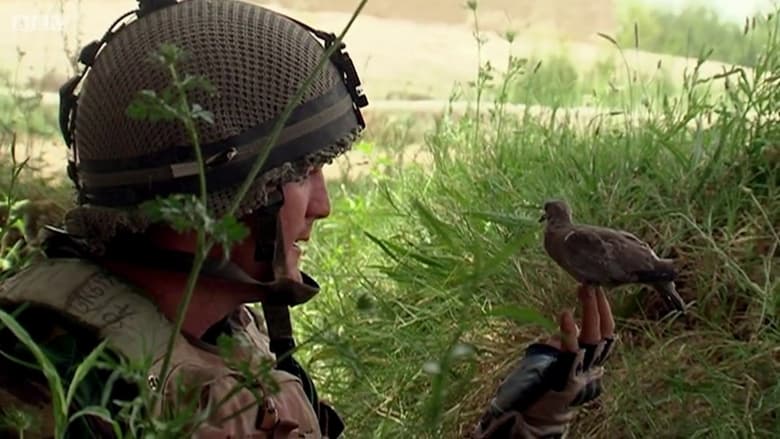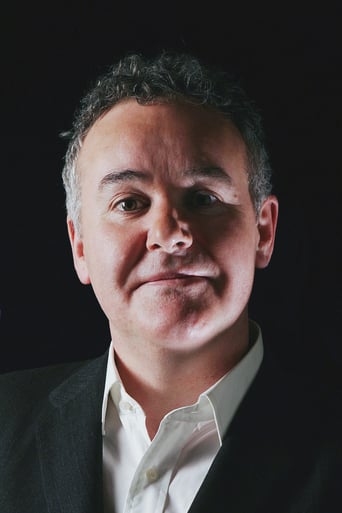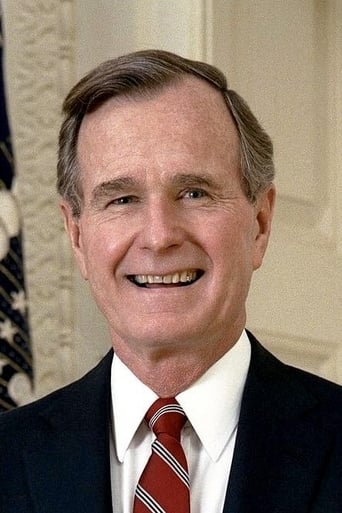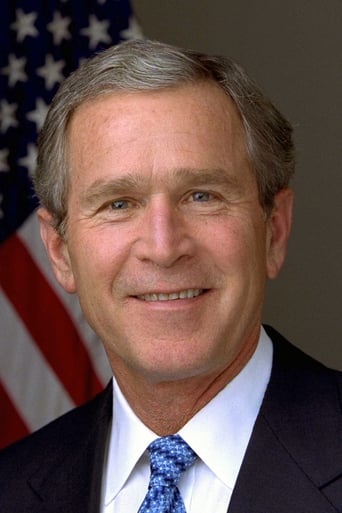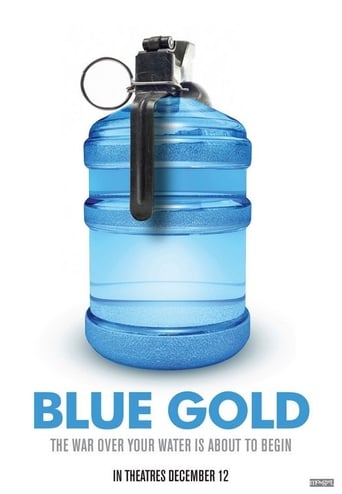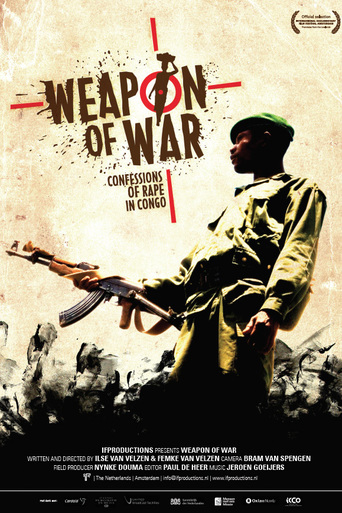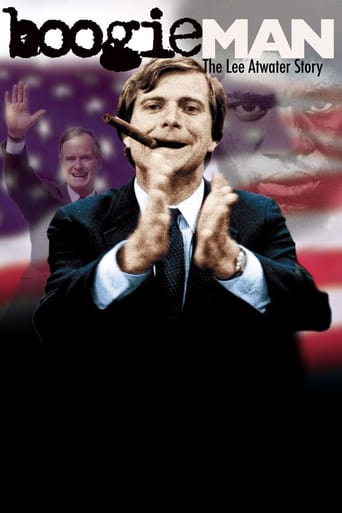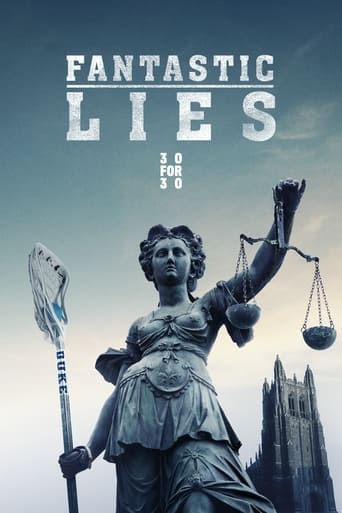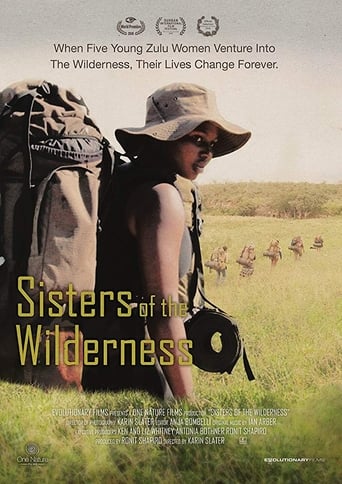Bitter Lake (2015)
An experimental documentary that explores Saudi Arabia's relationship with the U.S. and the role this has played in the war in Afghanistan.
Watch Trailer
Cast
Similar titles
Reviews
People are voting emotionally.
It's hard to see any effort in the film. There's no comedy to speak of, no real drama and, worst of all.
Ok... Let's be honest. It cannot be the best movie but is quite enjoyable. The movie has the potential to develop a great plot for future movies
True to its essence, the characters remain on the same line and manage to entertain the viewer, each highlighting their own distinctive qualities or touches.
Bitter Lake is an ambitious documentary that begins with some promise. But I soon lost patience with it and after 40 minutes I stopped watching it. The ambition consists in the breadth of the perspective it adopts so as to illuminate how the mess that is contemporary Afghanistan, and in particular contemporary Helmand province, came to be. It locates the roots of this mess in deals at the end of WW2 that Roosevelt entered into innocently enough--perhaps naively even--with the monarchs of Afghanistan (modernisation via energy and irrigation from US built dams) and Saudi Arabia (modernisation by dollars exchanged for oil). Unsurprisingly, both monarchs were also playing local power politics that Roosevelt probably knew or cared nothing about: the former aiming to consolidate the control of his family and more generally that of his fellow Pashtuns at the expense of Afghanistan's other ethnicities, the latter to consolidate the control of his own family at the expense of radical Wahabists who were opposed to a modernisation that threatened to dilute, curtail or corrupt Wahabism. The intrinsic interest of such information is enhanced by fascinating original footage. Unfortunately Curtis ruins it all by eschewing the linear narrative that is essential to a clear presentation of such complex material so as to indulge in frequent cross-cutting without rhyme or reason back and forth in time and space; moreover, instead of weeding out images irrelevant to his narrative he revels in them. This technique works well for thrillers or for director-centred explorations of the auteur's mind. But when it is adopted in a documentary it just creates noise. What a pity!
Adam Curtis is in the business of selling veiled conspiracies. Or better giving conspiracy arguments, while masquerading as reasonable. I like the drastic drop in narration. That is an extra point for a film maker like Adam Curtis. No more "those in power" without giving names or "political leaders" with no references. This time is a blend of footage stitched together rather nicely.Sadly this movie remains an Adam Curtis product. Curtis has wonderful and strong powers of hindsight. So 30-40 years later the mistakes are clear. The facts are mostly circumstantial. The data scarce. Bonus: the silent parts are mostly irrelevant to the main story and they are brought only to enhance the emotion.Contact me with Questions, Comments or Suggestions ryitfork @ bitmail.ch
There are a lot of very detailed and thoughtful reviews of this movie if you want more help determining if you should watch this film. I want to talk about how to watch it. Because you should, if you can stand it. I thought some of the information on the history of the U.S. relationship with Saudi Arabia and how it affected Afghanistan to be interesting and relevant.But, as with a few other reviewers, I felt a lot of the footage was unnecessary and distracting. We learn that things aren't always as black and white as they presented to us in news stories - that the messages have been simplified to make it easier to grasp and perhaps to hide mistakes that have been made. But in this "experimental" documentary, the explanations are muddied with clips that perhaps are designed to make us think, but in my case a lot of my thoughts were, "What is the point of this?" "Bitter Lake" could be an important movie if it were a lean 80 or 90 minutes long instead of 2 1/4 hours.But if you try watching and find yourself losing patience at times as I did, or if you are hesitant to even start watching, I have a suggestion. Watch the screen only when the narrator voice-over is present. This will give you the bulk of the orderly, historical stuff. Look away when it shifts to people dancing, or a soldier balancing a small bird in his hand. Do text messages during the comedy movie clips, or when the camera focuses for 30 solid seconds on the death stare of a "freedom" fighter. Obviously, this will be more easily achieved watching at home than in a theater, and cost a bit less, also.
Overall, as a documentary of American involvement in Afghanistan and its role as the power behind the 'throne' of Saudi Arabia it is overly long and of insufficient substance. There are many long sequences of essentially 'art house' material that does not drive the narrative. The actual narrative is no more than 15 minutes in length, and really that is well worth watching. Is it worth wading through more than 2 hours of 'found footage' for this narrative; for most people, I would say it's not. And that's probably why the BBC decided to release this only online on iPlayer. Even there it's not exactly very well promoted; the BBC's own iplayer search engine will not find it. It is still there but you have to use google to find out where it is. As to the narrative itself there are a number of fundamental flaws. The most important part of which is the importance and relevance of a British role in current affairs; there is a constant refrain of America and Britain, as if the two were somehow a joint force; that Britain somehow leads the way and America follows. It is Britain that industrialises and then so does America. It is British banks in which the Saudis kept their wealth, and it was this wealth that was then lent to people who could not pay it back, and the Americans followed along with this. In reality, it is Britain who has industrialised following its loss of empire, along with other previous European imperial powers like France. And it was British and other European banks that were bankrupted by wall street banks trying to shift their bad loans onto anyone foolish enough to buy them. Yes, a few wall street banks did go bankrupt but today they are stronger than ever. British banks are by contrast still bankrupt, kept alive by state ownership. Yes, there is the 'rust belt' in America where you can find disused factories but there is also 'silicon valley' which is a model of efficient production. In reality there has been a shift in the American economy which has led to decline in some areas and great wealth in others. And that shift is in some way reflected not in Britain in but within the European Union as a whole. Areas such as Britain are in decline but areas such as Germany, Denmark, and Netherlands have no empty factories and are very much in the ascendant.As for the political narrative that is superimposed onto events this is even more naïve. The image of 'good and evil', of 'liberating' foreign lands and bringing modern 'civilization' and technological progress to backward peoples is straight from 'empire'. The Americans don't really believe this because they quite plainly install corrupt undemocratic client regimes where they can and don't put serious money into improving the countries over which they have dominion. What Curtis is actually describing is the narrative of 'empire' where the British attempted to colonize much of the world including countries such as China and India; and where this did include huge investments to rebuild entire nations in the British imperial image, which was done under the narrative of 'modernization' and 'civilization'. America has always been careful in reflecting this narrative of 'empire' to the British to allow them the illusion of past glory. Curtis uncritically and unthinkingly reflects this back again, apparently unwittingly inwards to a British audience.Adam Curtis therefore makes fundamental errors in describing our own society. His narrative of Islamic society is much worse. Just as one example; to say the Osama bin Laden as a major influence in the Islamic world is just wrong. He was a member of a (tiny) militant offshoot of the Egyptian Muslim Brotherhood, which was (and still is) led by Dr. Ayman al-Zawahri. Curtis knows this because he made a similar (and much better) documentary about 9/11 in 2004. The conclusion of that documentary was that 'al-queda' was an invention of the American intelligence and did not really exist. Here Curtis seems to forget the conclusions of his previous work and play into the conventional narrative put forward by Washington. Rather conveniently, it is all the fault of the 'extreme' views of the 'wahabis'. He draws a rather convenient thread from the extremists who brought the Saudi 'king' to power to the current target of an American bombing campaign in the middle east : Islamic State. Again, this does not in any way reflect the complexities of Islamic society in the middle east but rather a concern some in Washington have about their ally Saudi Arabia, on whom they depend on for oil. Who are Islamic State really? Surely Curtis would be aware of the small band of extremists who started in Mecca and Medina 1400 years ago and whose 'caliphate' within a few years threatened the gates of Constantinople, the imperial capital of the eastern roman empire. The greeks who ran the eastern roman empire had a great fear of these 'crazies' from the desert. Ironically the beliefs of these greeks stemmed from five centuries before this when another small band of 'crazies' threatened the roman empire; a band of extremist jews whose radical interpretation of Plato undermined the belief system of the roman world.
